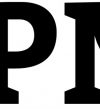Abstract
On the 16th of October 2020, a middle-school teacher, Samuel Paty, was beheaded by a terrorist who would not know of his existence if not for a number of videos posted on social media.[1] Yet, a law against publishing heinous content on line was approved in France on the 13th of May.[2] But in June, the Constitutional Council had repealed the article requiring to take down within 24 hours the incriminated content on the basis that it would trump freedom of expression.[3]
Heated political debate has sparked on this decision in the light of the recent gruesome event. The topic of the liability of internet intermediaries has never been so contentious.
Internet platforms have enjoyed immunity (known as Safe Harbour) both in EU law and overseas. More recently (2019), a new Copyright Directive[4] entered into force. It was implemented by Member States in June 2021. This piece of legislation prompted criticism because it requires enhanced responsibility for Internet platforms that do not remove quickly enough illegal content from their social media.[5] Currently, two new pieces of legislation are under way to horizontally streamline platforms’ filtering duties (the Digital Services Act and the Digital Markets Act).[6] However, a lot needs to be done to define the contours of these new norms, notably about different types of illegal content and whether they deserve different treatment.
This paper discusses filtering obligation (Robots as opposed to Judges) on copyright infringement vs. defamation/hate speech. It argues that it is not legally viable to implement the same norms on such different areas of law as the consequences of these norms’ infringement are incomparable.
>> Download the paper here
[1] A. Poirier, ‘ We French love our history teachers – Samuel Paty made us remember why’, The Guardian, 25/10/20 at <https://www.theguardian.com/commentisfree/2020/oct/25/we-french-love-our-history-teachers-samuek-paty-made-us-remember-why (accessed 26/10/2020)
[2] Loi n° 2020-766 du 24 juin 2020 visant à lutter contre les contenus haineux sur internet, JORF n°0156 du 25 juin 2020, available on <https://www.legifrance.gouv.fr/dossierlegislatif/JORFDOLE000038745184/> (accessed 26/10/2020)
[3] Conseil Constitutionnel, Décision n° 2020-801 DC du 18 juin 2020, available at <https://www.conseil-constitutionnel.fr/decision/2020/2020801DC.htm> (accessed 26/10/2020)
[4] Directive (EU) 2019/790 of the European Parliament and of the Council of 17 April 2019 on copyright and related rights in the Digital Single Market and amending Directives 96/9/EC and 2001/29/EC
[5] Ibid, Art 17.
[6] <https://digital-strategy.ec.europa.eu/en/policies/digital-services-act-package> (accessed 29/07/2021)
__________________________________________________________






